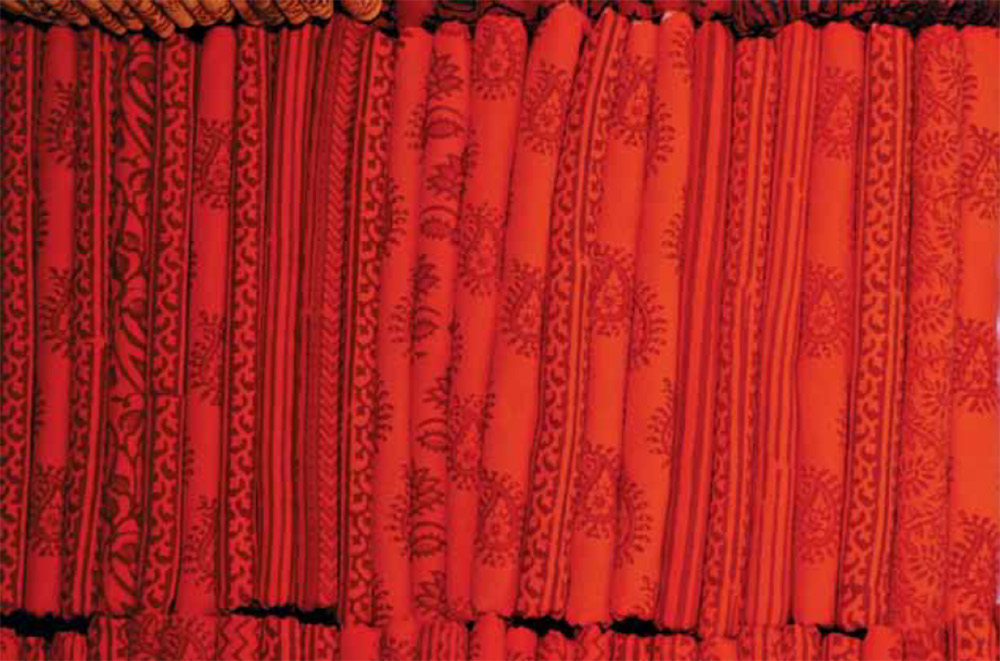
Textile prints from Rajasthan are known all around the world for their unique designs. The prints from Saanganer and Bagru (near Jaipur) are sought after by many. What is less appreciated is that this industry (which typically requires a lot of water) operates in amongst the most water-scarce states in India. Rajasthan is a state that is largely a desert!
Consequently the printing techniques are a bit different, especially when it comes to hand-printing, which is what Rajasthan is most known for. Textile design produced using hand-printing borders on being an art-form, if not recognized as art already.
However, operating in Rajasthan also means that resources (especially water) need to be used judiciously.
Aim of this guide: how to engage in resource-efficient manufacturing
The guide aims to explain as simply as possible the basics behind printing, and how it applies to the different techniques emerging from Rajasthan. Some of the questions that it will answer are:
• What are these printing techniques in Rajasthan?
• What is the science behind the printing?
• What are the best practices out there?
• What if one wanted to set-up a hand-printing facility?
• What are commonly faced issues in printing and how to resolve them?
The guide is meant for practitioners already engaged in hand-printing as well as entrepreneurs desirous of setting up a hand-printing operation.
In 2013, a few leading global brands based in Sweden embarked on a program to conserve water and other resources in some key sourcing locations in India. This program christened SWAR (Sustainable WAter and Resources management) also looked at Jaipur, where the Program began to work with a few leading printing organizations organized as Jaipur Bloc.
As a part of Program SWAR, some of the members of the Jaipur Bloc coalesced as a group (Delphi Group members are listed in the Acknowledgments) that met several times in 2013 to share experiences, challenges and solutions. Those discussions formed the outline for this guide and the content herein.
The contributors for this guide were engage and coordinated by the SWAR team at cKinetics which has edited and produced this document. This guide is expected to evolve with increasing feedback from the hand-printing community.
The team at Program SWAR offers this document to the hand-printing industry at large in the hope that it enriches the understanding of the way resources can be used better; and leads to resource conservation.
This guide has been produced as a part of Program SWAR in 2013 at the Jaipur Bloc.
Program SWAR
With natural resources becoming expensive and scarce, managing it and deriving efficiencies is necessary for the future competitiveness of the textile industry. In that context, the SWAR program was conceived by Indiska, KappAhl and Lindex in association with the Stockholm International Water Institute (SIWI). It is a cooperation program between Indian Textile Companies, Swedish buyers and SIWI and will focus on promoting Sustainable WAter Resource (SWAR) Management for the textile factories in Delhi and Jaipur.
Program SWAR has been supported by the Swedish Government through its international development agency: SIDA. cKinetics, a specialized Sustainability advisory firm with a team of experts in the textile and apparel domain has been supporting the program.
Jaipur Bloc
Jaipur Bloc is the banner under which a consortium of hand-printing manufacturers and dyeing companies operate in Bagru (near Jaipur), Rajasthan. The consortium operates out of a model eco-friendly textile park, with a wide variety of infrastructural facilities for effluent & sewage treatment, rain water harvesting, water recycling and conservation, and energy conservation.
Creative Commons Licensing
Content that has been provided by the authors has been for use by the industry. The content is being licensed under Attribution-NonCommercial-NoDerivs 3.0 Unported

Report produced and edited by cKinetics

Leave a Reply